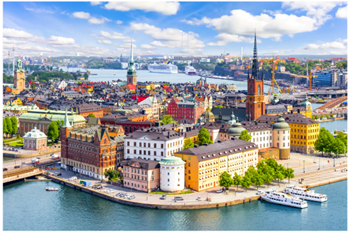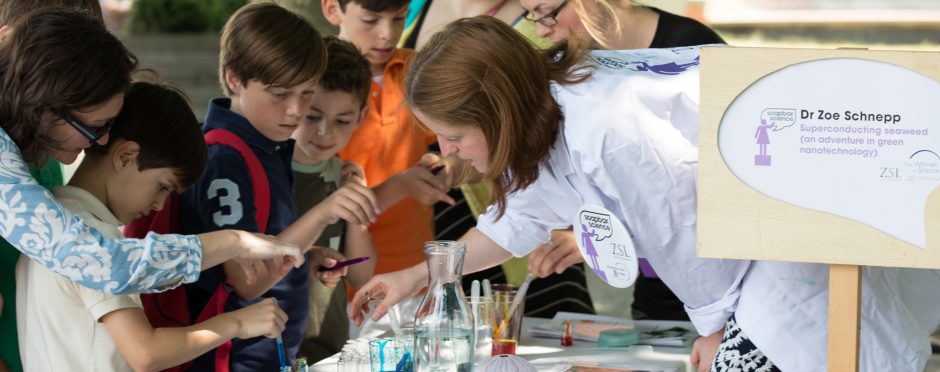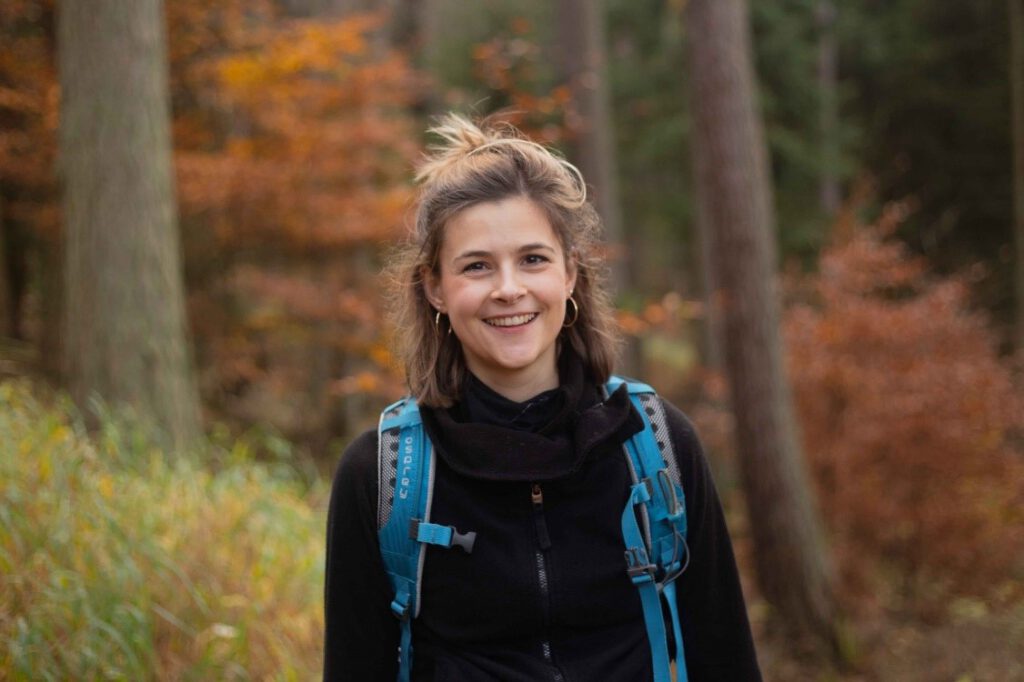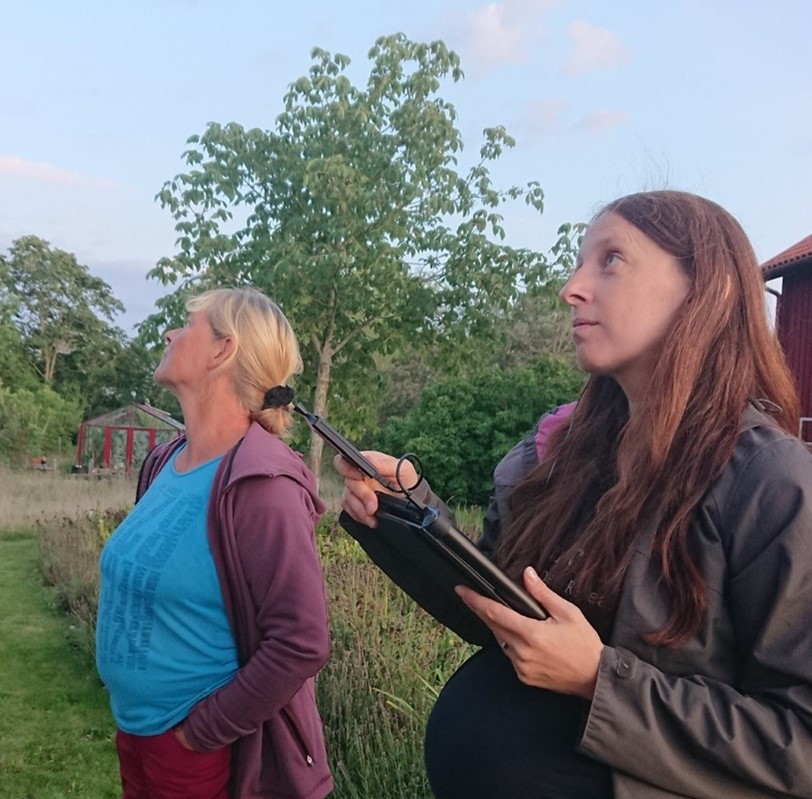Our soapbox science event 2025 will take place in Stockholm, Sweden. Built on 14 islands around one of Europe’s largest and best-preserved mediaeval city centres, the city is stunningly located by the Baltic Sea. It has about 1 mill inhabitants and it provides a large variety of cultural and out-door activities. Stockholm was the first city to receive the award European Green Capital by the EU Commission in 2010. Stockholm is an academic hub for Sweden with 18 universities and higher education institutions spanning a wide range of cultural, technological, scientific, medical, economic and sustainability disciplines.

Stockholm 2025 Soapbox Science local organizing team:
Our soapbox science event in Stockholm in 2025 is organized by five female scientists that do research at the Department of Physical Geography, Stockholm University. We are an engaged group of scientists that enjoys our research activities and we want to tell the public more about our findings.
Ronja Kraus, PhD student, Dept of Physical Geography, Stockholm University,
I am interested in wildlife conservation and management, which is particularly important where there are conflicts between humans and wildlife. Most of my previous field experience I gained in Namibia where I examined fences as an applied measure to mitigate conflicts with elephants. My PhD is about identifying general geospatial and temporal patterns in human-wolf interactions that occur in Sweden and Italy. As a geographer, I am looking at the geospatial distribution of wolves and livestock depredation incidences across the landscape. I am passionate in working with local stakeholders, hence, I also visited and interviewed livestock breeders who share the landscape with large predators like wolves. With this interdisciplinary approach and thoughtful knowledge transfer, I aim to create a comprehensive understanding that supports the conservation of wolves and sustaining the livelihood of livestock husbandry.
Heather Wood, Postdoctoral Researcher, Swedish Biodiversity Centre, Swedish University of Agricultural Sciences (SLU) in Uppsala.
My current research aims to understand where and when bats migrate across the Baltic Sea to help guide placement and operation of offshore wind farms. I use a variety of techniques to monitor bat movements e.g. acoustics to record the activity of bats over sea and also tagging of bats using radio transmitters to monitor their movements along the coast. I am a passionate communicator of science and as part of my PhD I launched a citizen project (www.batmapper.org) to collect information on bat colonies across Sweden. This successful project enabled me to engage with the public and the media whilst collecting valuable data for my research. Aside from my academic work, I am actively involved with two NGOs: BatLife Sweden and BatLife Europe. Through these organizations I’m involved with public outreach and policy development.
Charlotte Stinkeste, PhD student at KTH Royal Institute of Technology in Stockholm
I’m a third-year PhD candidate at KTH Royal Institute of Technology in Stockholm, Sweden. I hold a background in Cognitive Sciences from the University of Lille, France, where I previously explored the neural correlates of prediction in spoken language comprehension.
My current research lies at the intersection of Social Robotics, Behavioral Economics, and Psychology. I’m particularly interested in how human-like traits in social AI technologies—such as robots, chatbots, and voice assistants—influence the way we interact with them. For instance: Should robots be designed to look and sound like humans? Should chatbots use anthropomorphic expressions like “I think”?
To explore these questions, I draw on methodologies from behavioral economics and psychology, examining how core human values—like honesty, fairness, and altruism—are affected by our interactions with social AI systems. Ultimately, my goal is to understand what makes these interactions more meaningful, trustworthy, and enduring.
Laia Gines, Researcher at RISE in the Smart hardware and Nanotechnology department.
I’m an enthusiast of semiconductors materials and quantum technologies. Before moving to Sweden, I did a PhD in Physics in Cardiff University, which was focused on diamond growth and on the study and incorporation of a special type of defects into the diamond lattice, known as colour centres. These defects are a promising platform for quantum information and network applications. After my PhD, I moved to Sweden, and I specialised in quantum photonics and quantum optics. I studied novel quantum devices, and I developed optical devices to enhance cybersecurity. I am currently interested in something called Quantum Key Distribution (QKD), which is a method to securely share encryption keys. As it uses the laws of quantum physics, it makes impossible for an eavesdropper to intercept the key without being detected. I am a passionate of science and I aim to inspire and engage people, trying to make it accessible and fun for everyone!
Anna Treydte, Assoc Prof in Nature and Environmental Management, Dept of Physical Geography, Stockholm University.
My research activities cover a wide variety of socio-ecological aspects. In my group, we address livestock management and rangeland restoration in arid and semi-arid systems. Further, our research aims at promoting human-wildlife coexistence by understanding wild and domestic animal movement patterns, and predicting conflict hotspots in space and time. I also try to understand how invasive and encroaching plant species affect ecosystem functions and services. My research is often applied and includes participatory studies with the local communities to make biodiversity protection, natural resources use and functioning of our ecosystems more sustainable in the long run.





